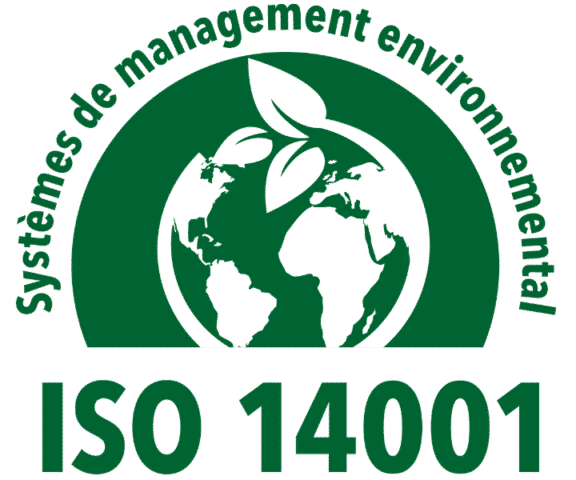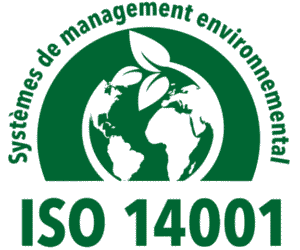
In today’s fast-changing environmental landscape, businesses across Saudi Arabia are embracing sustainability more than ever before. One powerful way to demonstrate a commitment to environmental responsibility is by obtaining ISO 14001 certification. Whether you’re a manufacturer, construction firm, logistics company, or service provider, having this international standard positions your organization as a leader in environmental management. This article takes a deep dive into the ISO 14001 certification process in Saudi Arabia, its significance, steps, benefits, and how you can get certified through KSA Etcert.
What Is ISO 14001 Certification?
ISO 14001 is an internationally recognized standard for Environmental Management Systems (EMS). It provides a structured framework that helps organizations identify, manage, monitor, and improve their environmental performance. The certification is issued by accredited bodies and is a sign of compliance with global environmental norms.
In Saudi Arabia, ISO 14001 certification is more than just a regulatory advantage—it’s a reputation builder, a cost saver, and a strategic tool for growth.
Why ISO 14001 Certification Matters in Saudi Arabia
Saudi Arabia’s Vision 2030 strongly emphasizes sustainability, environmental awareness, and green economic development. As a result, companies that align with international standards such as ISO 14001 are seen as valuable contributors to the Kingdom’s long-term goals.
Here’s why the ISO 14001 certification process in Saudi Arabia is gaining traction:
-
Compliance with Local and Global Laws
-
Minimizing Environmental Risks
-
Improved Operational Efficiency
-
Boosted Corporate Image and Brand Trust
-
Access to International Markets
Step-by-Step ISO 14001 Certification Process in Saudi Arabia
Achieving ISO 14001 certification in the Kingdom requires a strategic approach. Below are the key stages involved:
Step 1: Initial Consultation and Gap Analysis
The process starts with a consultation from an expert certification body like KSA Etcert. During this phase, professionals conduct a gap analysis to evaluate the current state of your organization’s EMS. They compare your practices with the ISO 14001 requirements to identify areas that need improvement.
Step 2: Planning and Documentation
Once the gaps are identified, a detailed action plan is developed. This includes:
-
Drafting or updating your Environmental Policy
-
Identifying environmental aspects and impacts
-
Setting objectives and targets
-
Developing documentation such as procedures, manuals, and records
Proper documentation is critical, as it provides evidence of your system’s compliance with the standard.
Step 3: Training and Awareness
All employees, especially those whose roles directly affect the environment, must be trained on ISO 14001. Training helps foster a culture of environmental responsibility across all departments.
Step 4: EMS Implementation
In this phase, the EMS plan is executed. You’ll begin to monitor environmental aspects, measure performance, report findings, and take corrective actions when needed. Proper implementation includes:
-
Waste and energy management
-
Pollution control
-
Emergency preparedness
-
Legal compliance tracking
Step 5: Internal Audit
Before undergoing a certification audit, an internal audit must be conducted. This helps organizations self-check their EMS for any discrepancies. Internal audits are conducted by trained internal auditors or an external consultant and are crucial for identifying any weak points before the main certification audit.
Step 6: Management Review
Top management must review the performance of the EMS. This meeting evaluates internal audit results, environmental performance data, legal compliance, and continual improvement measures.
Step 7: Certification Audit
The final step is the third-party certification audit. This is conducted in two stages:
-
Stage 1 Audit – Reviewing documents, policies, and readiness
-
Stage 2 Audit – On-site assessment of EMS implementation and effectiveness
If the organization complies with ISO 14001 standards, the certifying body—like KSA Etcert—issues the certificate.
Step 8: Surveillance Audits and Continual Improvement
Certification is valid for three years, but surveillance audits are conducted annually to ensure continuous compliance. Organizations must also show evidence of continual improvement during this period.
Benefits of ISO 14001 Certification for Saudi Companies
By undergoing the ISO 14001 certification process in Saudi Arabia, companies enjoy several benefits:
-
Regulatory Compliance: Meet all Saudi environmental regulations efficiently.
-
Improved Resource Management: Optimize water, energy, and raw material usage.
-
Risk Reduction: Minimize risks of environmental incidents and liabilities.
-
Cost Savings: Reduce waste and utility costs through better resource control.
-
Market Advantage: Gain credibility with international clients and partners.
-
Brand Enhancement: Build a reputation as an environmentally responsible organization.
ISO 14001 Across Key Sectors in KSA
Saudi Arabia’s major industries like oil and gas, construction, manufacturing, healthcare, and logistics are increasingly pursuing ISO 14001 certification. Here’s how it benefits them:
-
Oil & Gas: Better environmental risk control and compliance with Aramco and NEOM regulations
-
Construction: Efficient waste management, especially for large infrastructure projects
-
Manufacturing: Pollution control and energy savings
-
Healthcare: Safe disposal of medical waste and regulatory compliance
-
Logistics: Reduced carbon footprint and efficient route planning
Choosing the Right Certification Partner – Why KSA Etcert?
Selecting a trusted certification body is vital for success. KSA Etcert has established itself as a leading name in ISO standards in the Kingdom. Here’s why businesses prefer working with them:
-
Local Expertise with Global Standards
-
Customized Solutions for All Industries
-
Competitive Pricing and Timely Certification
-
Free Consultation and Gap Analysis
-
Dedicated Support During and After Certification
With its local presence and deep industry understanding, KSA Etcert is the ideal partner to help you navigate the ISO 14001 certification process in Saudi Arabia.
Internal Linking Recommendations
To further understand ISO 14001 and environmental certification services in Saudi Arabia, visit the dedicated service page here:
👉 ISO 14001 Environment Management – KSA Etcert
For other ISO certifications, expert consulting, and more information on compliance support, explore the official home page:
👉 KSA Etcert Official Website
Final Thoughts
Getting ISO 14001 certification in Saudi Arabia is not just a matter of ticking compliance boxes—it’s a strategic move that boosts your environmental credibility, business efficiency, and overall reputation. As sustainability becomes a national priority, this certification gives your business a clear edge.
With an expert certification partner like KSA Etcert, the process becomes streamlined and achievable, regardless of your industry or company size. By following the structured steps above and committing to continual improvement, your organization can achieve, maintain, and benefit from ISO 14001 certification in the long term.






